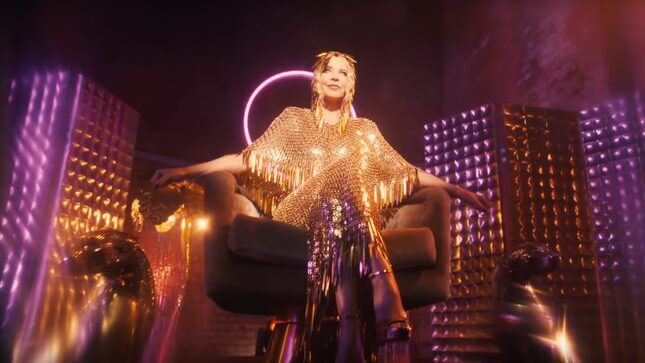

“I feel like anything could happen,” Kylie Minogue croons in the opening moments of her 15th studio album, Disco. It’s an excellent prelude to “Magic,” the first single, and a hopeful start to an album that can best be described as joyous. The chorus then asks, over and over again, “do you believe in magic?” Listening to this album, I do—but I’m grieving for the loss of it deeply.
Disco was released last Friday morning, and by night, I’m still struggling to sleep. I take a sleeping pill, and a face appears in my dreams. As they come into view, they’re telling me something. I’m trying to hear them, and I can make out, clear as day, the verse to “Miss a Thing.” They’re whispering. “I want to lose control.”
Then it’s Sunday. I haven’t turned off Disco yet. I’m studying the bridge to “Say Something,” another single. Minogue croons “‘Cause love is love, it never ends /
Can we all be as one again?” There’s a touch on my shoulder, and a finger that travels down the curve of my back. I jump and turn, but nobody is there.
Monday and Tuesday roll together. I’m trying to work, but I can’t escape the chorus of “Last Chance.” It reads like a warning, an omen of doom. “Last chance!” It loops again. “Last chance!” It loops again. “Last chance!” I rip my headphones off and go for a drive. It follows me down Los Feliz Boulevard. “This is the last chance for the first dance.”
By Wednesday, I have accepted the incorporeal club space that Kylie Minogue has called down on my life and apartment. There’s work to do, but I can’t help myself. I’m spinning in the living room to “I Love It” in the quiet hours of the morning before the sun has yet to peek out from the cloud cover. “I love it, I love it, I love it.” I see the face again in my dreams that night. “It’s coming to find you wherever you’re at, something so strong you can’t hold it back.”
Disco, Minogue’s 15th studio album, is a creation born of the pandemic—a complex, yet hopeful, meditation on the loss of public space. Listening to it this last week, I miss the magic of a stranger more than ever, the touch of people I’ve never met before. I yearn for the liminal space in a club bathroom or the clanking of a subway on the way home with someone too beautiful to be believed. There is a mutual exchange of physicality and emotion in the club, even the one that dance maven Minogue calls down from the heavens for a blissful 16 tracks, absent of anyone but me and her and the music. These are feelings I haven’t experienced in longer than I—or anyone, really—ever expected.
It is nearly impossible to acknowledge a piece of work like Disco without also recognizing the circumstances into which it was born: an uncontrolled pandemic and global unrest, chiefly. The world is not as indoors as it was when lockdowns first rolled out, especially here in the states, but for the most part, clubs are still shut down, as are most other music venues. It’s coincided with a rise in what culture critics have and internet stans have dubbed “pop disco,” a mostly wayward descriptor absent of context. But the girlies have soldiered on regardless, with Dua Lipa’s aptly named Future Nostalgia at the helm of the new vanguard of Studio 54-bent pop artists.
-

-

-

-

-

-

-

-

-

-

-

-

-

-

-

-

-

-

-

-

-

-

-

-

-

-

-

-

-

-

-

-

-

-

-

-

-

-

-

-








































